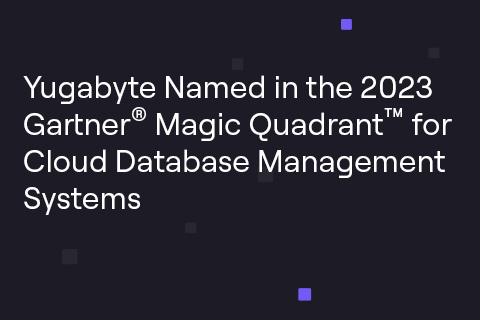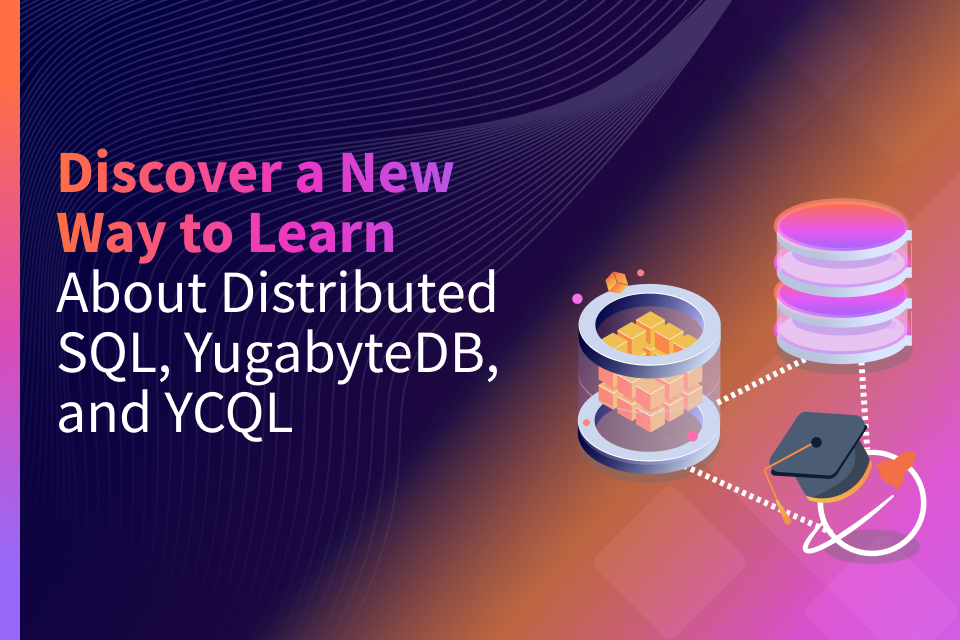Announcing YugabyteDB on Crossplane, the Open Source Multicloud Control Plane
We are excited to announce that YugabyteDB is now available as a self-managed database service on Crossplane, the open-source multicloud control plane. Built on top of our recent Rook Kubernetes Operator for YugabyteDB, this offering makes YugabyteDB one of the first distributed SQL databases available on Crossplane.
Benefits of the Joint Solution
With Crossplane as the single control plane, users can provision and manage multiple YugabyteDB clusters across Google Kubernetes Engine, Amazon Elastic Kubernetes Service, and Azure Kubernetes Service with ease. The new addition gives applications a completely free in-cluster alternative to proprietary databases such as Google Cloud SQL, Amazon RDS Aurora, or Azure SQL DB. Unlike those monolithic SQL databases, YugabyteDB adds scalability, resilience, and geo-distribution capabilities to the data tier.
As software organizations deploy ever-larger numbers of Kubernetes clusters and are increasingly choosing a multi-vendor approach to cloud infrastructure services, open-source projects such as Crossplane solve the challenge of simplifying multicloud application management. YugabyteDB is an open-source Kubernetes-native distributed SQL database, and Yugabyte’s commercial offerings – the Yugabyte Platform and the Yugabyte Cloud – are built on the same multicloud principles as Crossplane. We are excited to offer YugabyteDB on Crossplane, as the natural next chapter in our journey.
Prior to YugabyteDB on Crossplane, if users needed to manage multiple clusters across a multicloud environment using only open source tools, they needed to first invest significant operations engineering. Users can now deploy complete application stacks including YugabyteDB across Kubernetes clusters at cloud providers or on-premises data centers. Crossplane can automate deployment practices, including specifying which cloud provider and which region inside that cloud provider’s network should run a given application or database depending on how and where it is used.
“We’ve reached a new era of cloud-computing. Multicloud is a reality and companies are recognizing the need for a more open cloud computing platform, offering more choice and control,” said Bassam Tabbara, CEO and Founder of Upbound, the company behind the popular open source projects Crossplane and Rook. “It’s great to partner with Yugabyte on advancing the future of multicloud. It’s an exciting time and we look forward to driving the future of multicloud though open source and community driven efforts”.
Get Started
Instructions on getting started with YugabyteDB 2.0 on Crossplane 0.4 are available here.

Here is an outline of the steps involved.
1. Setup Crossplane
- Install Crossplane on a Kubernetes cluster
- Install one or more cloud provider stacks (that you would install YugabyteDB on) onto Crossplane. Currently, GCP, AWS and Azure stacks are available.
- Install the Rook stack onto Crossplane.
2. Setup YugabyteDB on Crossplane using the Rook Kubernetes Operator
- Pick a cloud provider and provision a remote Kubernetes cluster using a Resource Claim
- Install the Rook Operator for YugabyteDB
- Install an application (such as yugastore) that is powered by the PostgreSQL-compatible YugabyteDB
3. Instantiate the YugabyteDB and application clusters
- Provision a YugabyteDB cluster for your application to use on the remote Kubernetes cluster
- Provision an instance of the application cluster
- Application is now ready to serve user requests.
See a Demo
Yugabyte and Crossplane will demonstrate the power of the integrated solution at MulticloudCon, a zero-day event co-located with KubeCon and CloudNativeCon North America 2019, on November 18, 2019 in San Diego, California. Hosted by GitLab and Upbound, MulticloudCon was created to highlight the rapid rise of multicloud technologies, such as YugabyteDB, that provide enterprises with more control and flexibility on where their applications and databases live. For more information on the conference and to register for Yugabyte and Crossplane’s demonstration, please visit https://multicloudcon.io/.
What’s Next?
- Compare YugabyteDB in depth to databases like CockroachDB, Google Cloud Spanner and MongoDB.
- Get started with YugabyteDB on macOS, Linux, Docker, and Kubernetes.
- Contact us to learn more about licensing, pricing or to schedule a technical overview.


